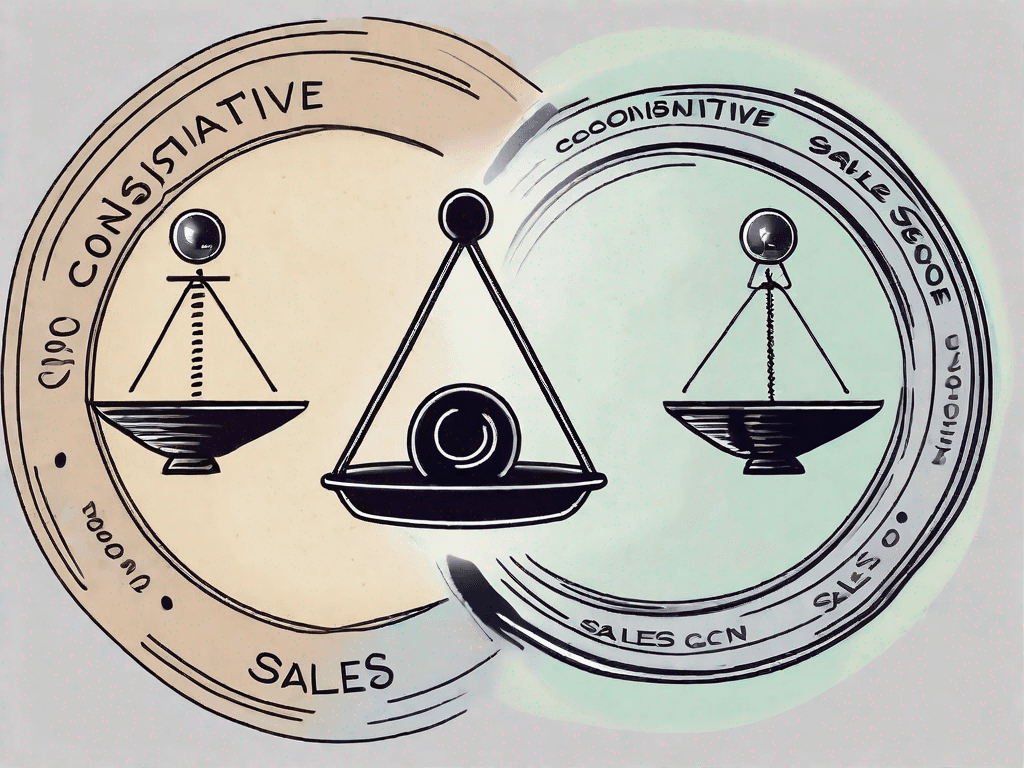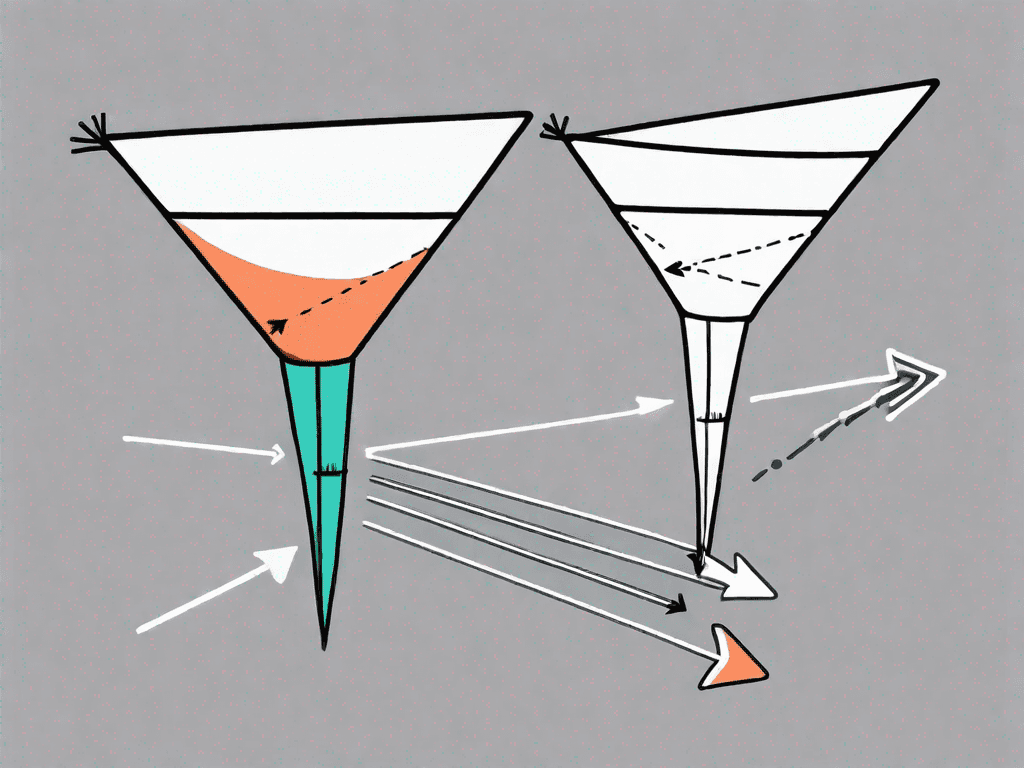
Account Executive vs Customer Success Manager: What's the Difference?
In today's competitive business landscape, organizations are continually seeking ways to maximize customer satisfaction and drive revenue growth. Two roles that play a crucial role in achieving these objectives are Account Executives (AE) and Customer Success Managers (CSM). While these roles may sound similar, they each have distinct responsibilities and focus areas. In this article, we will explore what an Account Executive and a Customer Success Manager do, examine the differences between them, and provide real-life examples to illustrate their contrasting roles and functions. Let's delve deeper into this comparison.
Defining Account Executive and Customer Success Manager
In today's competitive business landscape, companies rely on various roles to drive growth and ensure customer satisfaction. Two key positions that play a crucial role in achieving these objectives are Account Executives and Customer Success Managers. Let's take a closer look at what each role entails and how they contribute to the success of a company.
1.1 - What is an Account Executive?
An Account Executive is a dynamic and results-oriented professional who is primarily responsible for generating revenue by acquiring new clients and maintaining relationships with existing ones. They act as the key point of contact between the company and its clients, ensuring that customer needs are met and exceeded.
Account Executives possess excellent communication and interpersonal skills, allowing them to establish strong rapport with clients. They are adept at identifying sales opportunities, negotiating contracts, and closing deals. In a fast-paced environment, Account Executives thrive on meeting sales targets and building long-lasting relationships with clients.
Furthermore, Account Executives stay up-to-date with industry trends and market conditions, enabling them to provide valuable insights and recommendations to clients. They work closely with cross-functional teams within the company, such as marketing and product development, to ensure that customer expectations are met and exceeded.
1.2 - What is a Customer Success Manager?
A Customer Success Manager is a dedicated professional who focuses on building positive, long-term relationships with customers. Their primary objective is to ensure that customers achieve their desired outcomes and receive maximum value from the product or service they have purchased.
Customer Success Managers are proactive in understanding customer needs, finding solutions to address their pain points, and acting as a trusted advisor. They work closely with clients to develop a deep understanding of their business goals and objectives, aligning the company's offerings to meet those needs effectively.
Customer Success Managers emphasize on customer retention, upselling, and driving customer advocacy. They work collaboratively with internal teams to ensure that customers receive exceptional support and service throughout their journey with the company. By providing ongoing guidance and support, Customer Success Managers help customers achieve their desired outcomes, leading to increased customer satisfaction and loyalty.
Moreover, Customer Success Managers play a crucial role in gathering customer feedback and insights, which they then share with relevant teams within the company. This feedback loop helps drive product enhancements and improvements, ensuring that the company's offerings continue to meet and exceed customer expectations.
In conclusion, both Account Executives and Customer Success Managers are vital contributors to a company's success. While Account Executives focus on revenue generation and maintaining client relationships, Customer Success Managers prioritize customer satisfaction and long-term success. Together, these roles form a strong foundation for business growth and customer-centricity.
What's the difference between an Account Executive and a Customer Success Manager?
Although both roles contribute to customer satisfaction and overall business success, the key difference lies in their distinct focuses.
Account Executives concentrate on the acquisition of new clients by driving sales and revenue growth. Their main goal is to convert prospects into customers and establish a robust sales pipeline. They excel at identifying and closing deals while maintaining strong relationships with clients to ensure repeat business.
Account Executives are skilled in understanding the needs and pain points of potential customers. They use this knowledge to tailor their sales approach and effectively communicate the value proposition of the product or service. By building trust and rapport, Account Executives are able to navigate complex sales cycles and overcome objections. They are constantly seeking new opportunities and exploring innovative strategies to expand the customer base.
On the other hand, Customer Success Managers prioritize customer satisfaction and retention. They go beyond mere sales transactions and focus on nurturing long-term relationships. Their success is measured by the extent to which customers achieve their desired outcomes and continue to use the product or service. Customer Success Managers leverage their expertise to support customers in achieving maximum value and act as a strategic partner throughout their journey.
Customer Success Managers are dedicated to understanding the unique needs and goals of each customer. They work closely with clients to develop tailored success plans and provide ongoing guidance and support. By proactively addressing any challenges or concerns, Customer Success Managers ensure that customers are able to fully utilize the product or service and achieve their desired outcomes. They are skilled in building strong relationships and are often seen as trusted advisors by their customers.
In addition to their focus on customer satisfaction, Customer Success Managers also play a crucial role in driving product feedback and improvement. They act as the voice of the customer within the organization, gathering insights (which can be via product feedback tools for product managers) and relaying them to the product development team. This feedback loop helps in enhancing the product or service based on customer needs and preferences.
Overall, while Account Executives are primarily responsible for acquiring new customers and driving sales, Customer Success Managers are focused on ensuring customer satisfaction, retention, and long-term success. Both roles are essential for a company's growth and profitability, and they often work closely together to achieve common goals.
Examples of the Difference between an Account Executive and a Customer Success Manager
2.1 - Example in a Startup Context
In a startup environment, Account Executives play a crucial role in driving sales growth. They proactively identify potential clients, conduct product demos, and negotiate contracts to close deals. Account Executives are continuously engaging with prospects and providing the right information to address their concerns. Customer Success Managers in startups focus on onboarding new customers, ensuring a positive initial experience, and ongoing support to drive customer satisfaction and retention. They work closely with customers, understanding their evolving needs, and driving adoption of the product or service.
2.2 - Example in a Consulting Context
In the consulting industry, Account Executives build relationships with potential clients, understanding their business challenges, and proposing solutions through proposals and presentations. They excel at demonstrating the value that the consulting services bring to the client's organization. Customer Success Managers in consulting firms work closely with clients after the contract is signed, ensuring successful project delivery, monitoring client satisfaction, and identifying opportunities to expand the relationship. They serve as a reliable point of contact for clients, addressing any obstacles or concerns throughout the engagement.
2.3 - Example in a Digital Marketing Agency Context
When it comes to digital marketing agencies, Account Executives are responsible for acquiring new clients through lead generation, conducting sales pitches, and negotiating contracts. They collaborate with clients to understand their marketing goals and align agency services to meet those objectives. Customer Success Managers in digital marketing agencies focus on optimizing client campaigns, monitoring key performance indicators, and ensuring clients achieve their desired marketing outcomes. They actively provide insights and recommendations to improve campaign effectiveness and drive client satisfaction.
2.4 - Example with Analogies
Using analogies can further illustrate the differences between Account Executives and Customer Success Managers. Comparing it to a game of basketball, an Account Executive would be the player responsible for scoring points. The Customer Success Manager, on the other hand, can be likened to the coach, ensuring that each player excels in their position and the entire team wins the game. Similarly, an Account Executive may be seen as the architect who designs and constructs a building, while the Customer Success Manager functions as the facility manager, ensuring optimal usage and satisfaction once the building is occupied.
As outlined, the distinction between an Account Executive and a Customer Success Manager lies in their areas of emphasis and primary responsibilities. While the former focuses on driving sales growth and acquiring new clients, the latter prioritizes customer satisfaction and retention. Both roles play indispensable parts in an organization's success, complementing each other to create a harmonious customer-centric ecosystem.
In conclusion, understanding the difference between Account Executives and Customer Success Managers is vital for organizations aiming to optimize revenue growth and customer satisfaction. By recognizing the unique strengths and responsibilities of each role, businesses can strategically align their resources to nurture both new business acquisition and customer retention. Embracing the dynamic interplay between these roles sets the stage for long-term success in today's competitive business landscape.


















































































































































